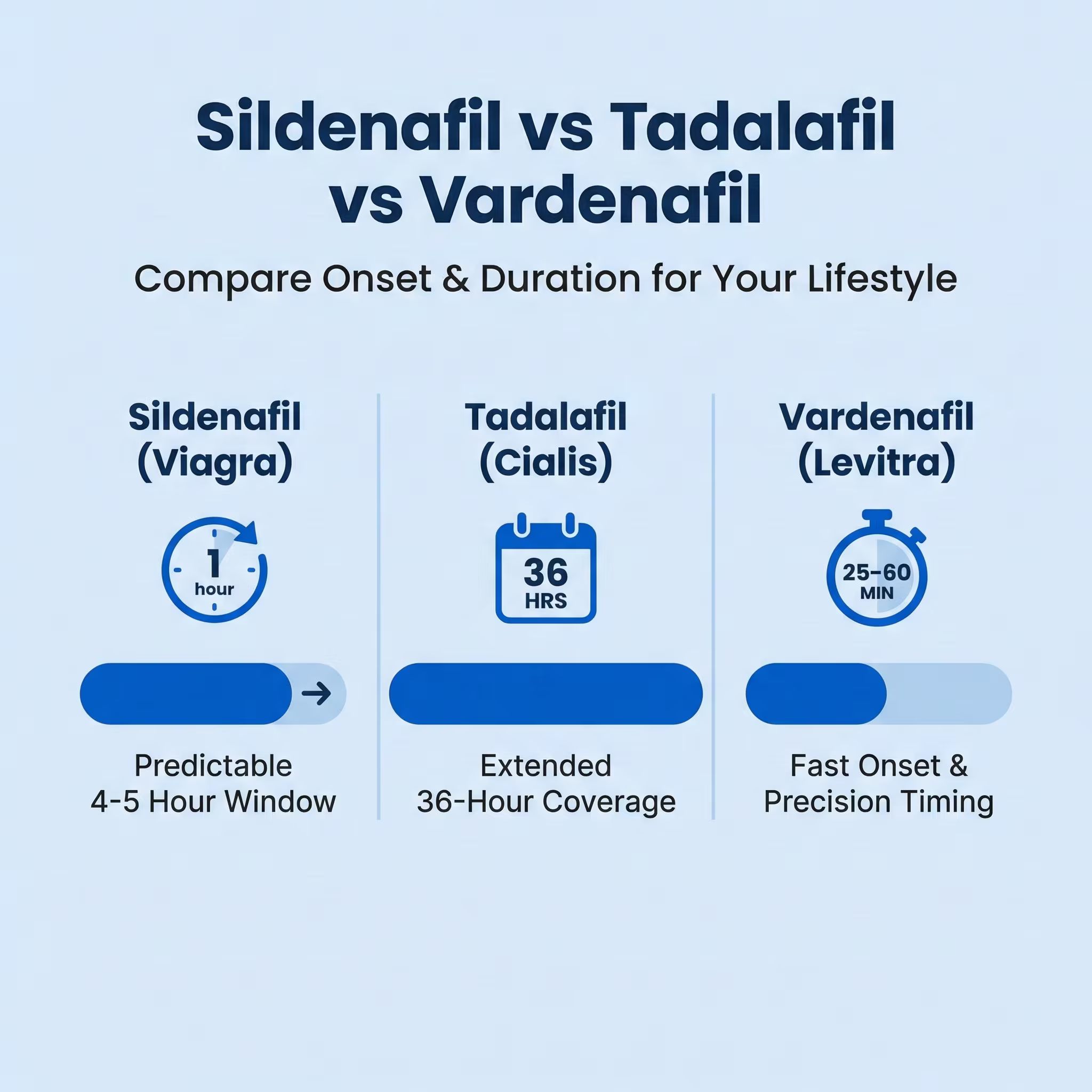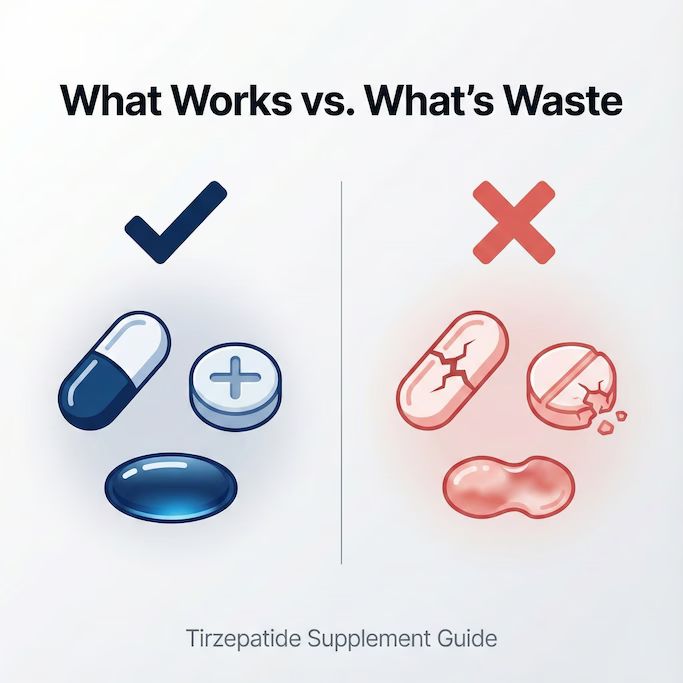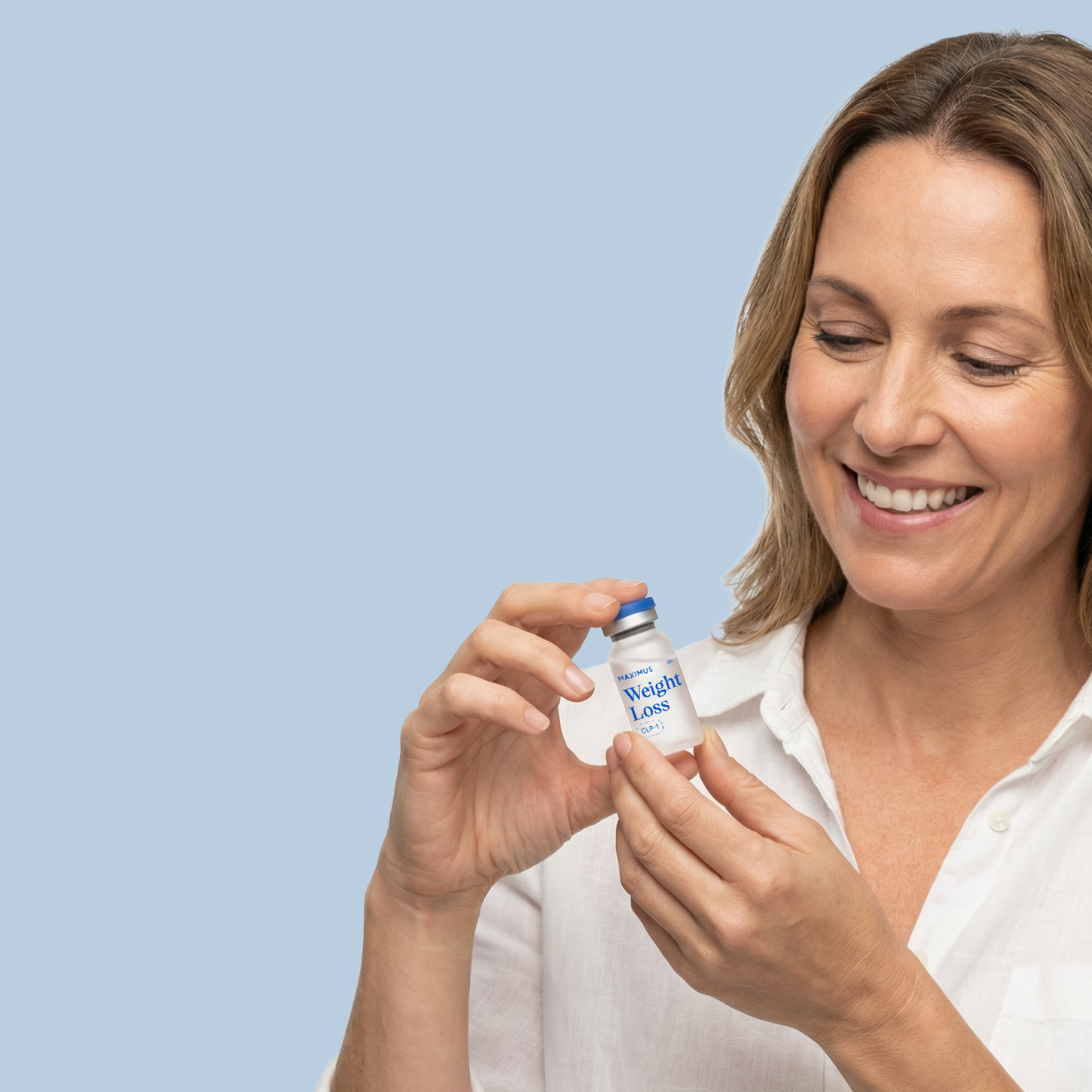By Starling Krentz, MS and Gabriel Alizaidy, MD, MS
Did you know that oxytocin is extremely important for sexual connection? Sure, you’ve probably heard that it’s released after sex, but it’s just as important during and even before sex.
Oxytocin plays a key role in arousal, orgasm, and the bonding that follows. It activates specific regions of the brain tied to pleasure and attachment, making it one of the most essential molecules for both sexual function and emotional closeness.
In men, oxytocin rises steadily through sexual activity rather than spiking only at climax, helping maintain erection quality and deepening pleasure during ejaculation.¹ In women, it boosts orgasm intensity and heightens pleasure.²
And this isn’t just about theoretical science or trivia knowledge for Jeopardy. Harnessing the power of oxytocin can directly improve sex and strengthen intimacy.
How Oxytocin Affects the Brain During Sex
Oxytocin is made in the hypothalamus and released by the pituitary gland. During sex, it acts on brain regions responsible for pleasure, reward, and bonding.³ It activates the nucleus accumbens, which processes pleasure and reward, and it calms the amygdala, which helps reduce anxiety that can block connection.³
Together, these effects create the mental state where arousal, focus, and emotional closeness can thrive.
After sex, oxytocin’s influence becomes even more noticeable. It promotes post-sex bonding, the quiet comfort that helps relationships feel stronger and more satisfying.⁴
What the Research Shows
A study in the Archives of Sexual Behavior measured oxytocin levels in 49 couples during real sexual encounters at home.¹ Samples were taken before sex, immediately after, and again 20 and 40 minutes later.
For men, oxytocin levels rose gradually throughout the encounter, peaking at 40 minutes after sex.¹ Women showed their highest levels before sex and again at 40 minutes post-sex.¹
At that 40-minute mark, researchers saw something remarkable. The hormone levels between partners aligned, creating what they described as hormonal synchrony.¹ This mirrored physiological state may explain why partners often feel especially close in the time after sex.
Women with higher pre-sex oxytocin were also more likely to experience orgasm.¹ These patterns together show how oxytocin supports both physical satisfaction and emotional connection.
Real-World Sexual Benefits
The folks using Oxytocin Calming Cream have already been giving rave reviews.
Many say they feel more connected, more playful, and naturally drawn to their partners. One described it as “warmth in a bottle.” Another mentioned “feeling calm but focused, with stronger erections.”
A common thread appears: less pressure, less overthinking, and more genuine connection. One person put it this way, “Things just feel easier. The tension fades, and you can actually enjoy the moment.”
By easing stress and performance anxiety, oxytocin helps sex feel less mechanical and more natural.
Pairing Oxytocin with Blood Flow Support
Oxytocin manages the neurochemical and emotional side of sexual function, while blood flow covers the physical side.
That's where PDE5 inhibitors come in. Sildenafil, tadalafil, and vardenafil each work differently—but all improve circulation by blocking phosphodiesterase type 5, increasing nitric oxide signaling.⁵ These medications, first developed for erectile dysfunction, also enhance blood flow throughout the body.
Using oxytocin with PDE5 inhibitors targets both sides of sexual health. Oxytocin primes the brain for arousal and connection, and PDE5 inhibitors make sure the body responds accordingly.
For men dealing with reduced blood flow, high blood pressure, or diabetes, this combination can help restore performance while preserving the emotional aspects of satisfying sex.
Better Sex Through Better Biology
So we’ve now learned that oxytocin can sustain arousal in men, enhance orgasm in women, lower anxiety, and cement bonding afterward. But how can you increase oxytocin and what is this Oxytocin Calming Cream?
Topical supplementation allows you to benefit from increased oxytocin directly, improving both physical satisfaction and emotional closeness, using an easy-to-apply, once-daily cream. You can read more about the study we did here: https://www.maximustribe.com/white-paper-oxytocin
All parts of sex matter when it comes to oxytocin. From the buildup to the release and the bonding that follows, the hormone plays a role throughout. So for anyone looking to enhance their sexual experience, maxing out oxytocin levels seems like the obvious choice.
As one user said, “It improves everything—sleep, confidence, enjoyment, and how I feel about myself.”
Better sex really does start with better biology.
References
- Denes A, Bennett-Brown M, Crowley JP, et al. Charting salivary oxytocin across an episode of naturally occurring partnered sex. Arch Sex Behav. 2025.
- Meston CM, Frohlich PF. The neurobiology of sexual function. Arch Gen Psychiatry. 2000;57(11):1012-1030.
- Striepens N, Kendrick KM, Maier W, Hurlemann R. Prosocial effects of oxytocin and clinical evidence for its therapeutic potential. Front Neuroendocrinol. 2011;32(4):426-450.
- Scheele D, Wille A, Kendrick KM, et al. Oxytocin enhances brain reward system responses in men viewing the face of their female partner. Proc Natl Acad Sci U S A. 2013;110(50):20308-20313.
- Andersson KE. PDE5 inhibitors - pharmacology and clinical applications 20 years after sildenafil discovery. Br J Pharmacol. 2018;175(13):2554-2565.
----
Disclaimer: The contents of this article, including, but not limited to, text, graphics, images, and other information, is for information purposes only and does not constitute medical advice. The information contained herein is not a substitute for and should never be relied upon for professional medical advice. The content is not meant to be complete or exhaustive or to be applicable to any specific individual's medical condition. You should consult a licensed healthcare professional before starting any health protocol and seek the advice of your physician or other medical professional if you have questions or concerns about a medical condition. Always talk to your doctor about the risks and benefits of any treatment. Never disregard or delay seeking professional medical advice or treatment because of something you have read on this site. Maximus does not recommend, endorse, or make any representation about the efficacy, appropriateness, or suitability of any specific test, products, procedures, treatments, services, opinions, healthcare providers or other information contained herein. Maximus is not responsible for, nor will they bear any liability for, the content provided herein or any actions or outcomes resulting from or related to its use.
----










